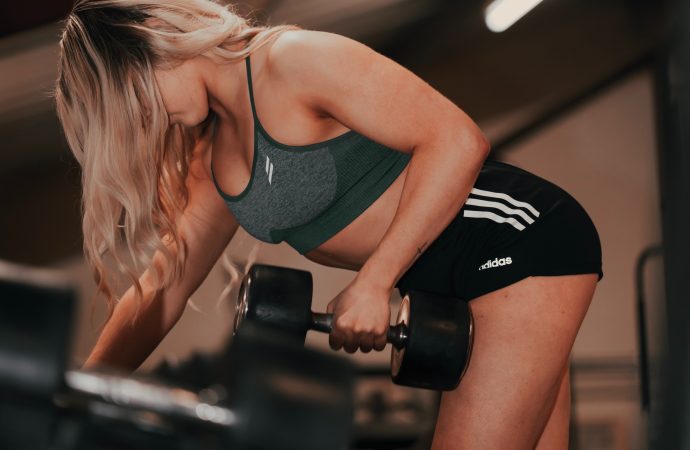Introduction Are you tired of putting in the effort at the gym and not seeing results? It’s time to realize that nutrition plays a crucial role in achieving your fitness goals. The saying, “you are what you eat” couldn’t be truer when it comes to building a strong and healthy body. In this blog post,
Introduction
Are you tired of putting in the effort at the gym and not seeing results? It’s time to realize that nutrition plays a crucial role in achieving your fitness goals. The saying, “you are what you eat” couldn’t be truer when it comes to building a strong and healthy body. In this blog post, we’ll dive into the power of fueling up with nutritious foods and why they matter for reaching your full potential in fitness. Let’s get started!
The Importance of Good Nutrition
Good nutrition is an important part of any fitness routine. What you eat can impact your energy levels, how well you recover from workouts, and your overall health. Eating a nutritious diet can help you reach your fitness goals and improve your overall health.
There are many benefits to eating a healthy diet. Good nutrition can help you:
-Maintain a healthy weight
-Get adequate rest and recovery
-Have more energy for workouts
-Build strong muscles and bones
-Reduce your risk of injuries
-Improve your mood and mental clarity
Eating a nutritious diet is an important part of any fitness plan. If you want to improve your health and reach your fitness goals, focus on consuming plenty of fruits, vegetables, whole grains, lean proteins, and healthy fats.
Tips for Achieving Your Fitness Goals
It’s no secret that eating right is essential to maintaining a healthy lifestyle and achieving your fitness goals. But with so many conflicting nutrition claims out there, it can be hard to know where to start. Luckily, we’ve got some tips to help you sort through the noise and make smart choices that will help you reach your goals.
1. Make sure you’re getting enough protein. Protein is essential for muscle growth and repair, so if you’re looking to build muscle or recover from workouts, make sure you’re getting enough. Aim for 0.36 grams per pound of body weight, or about 55 grams per day for a 150-pound person.
2. Prioritize healthy fats. Fat gets a bad rap, but the truth is that not all fats are created equal. unhealthy saturated fats can contribute to heart disease, but healthy unsaturated fats are essential for cell health and can actually help improve cholesterol levels. aim for 20-35% of your daily calories from fat, with most coming from sources like nuts, seeds, avocados, and olive oil.
3. Fill up on fiber. Fiber is a type of carbohydrate that the body cannot digest, so it helps add bulk to stool and promote regularity. It can also help lower cholesterol levels and blood sugar levels, making it great for people with diabetes or prediabetes. Most adults should aim for 25 grams of fiber per day.
What to Eat to Fuel Your Workouts
If you want to be at your best during workouts, you need to fuel your body with the right nutrients. Eating a nutritious diet will give you more energy and help your body recover from workouts more quickly.
There are a few things to keep in mind when you’re trying to eat for better workout performance. First, you need to make sure you’re eating enough calories. If you’re not taking in enough calories, your body won’t have the energy it needs to power through workouts.
Second, you need to focus on getting complex carbohydrates and lean proteins. Complex carbs will give you sustained energy throughout your workout, while lean proteins will help repair and rebuild muscle tissue.
Finally, don’t forget to stay hydrated by drinking plenty of water. Dehydration can lead to fatigue and reduced performance.
By following these tips, you can make sure you’re giving your body the nutrients it needs to support your workout goals.
Foods to Avoid When Trying to Improve Your Fitness
There are certain foods that can sabotage your fitness goals, no matter how hard you work out. Here are some of the worst culprits:
Sugar: Sugar is one of the biggest enemies of good health. It’s high in calories and can lead to weight gain, diabetes, and other serious health problems.
Trans fats: Trans fats are found in many processed foods, such as cookies, crackers, and cakes. They’re also often used to fry food. Trans fats increase your risk of heart disease and should be avoided.
High-sodium foods: Too much sodium can cause high blood pressure and lead to other health problems. Be wary of processed foods, which are often high in sodium.
Alcohol: Alcohol is full of empty calories and can make it harder to lose weight or maintain a healthy weight. It can also dehydrate you, which can impact your workout performance.
Conclusion
In conclusion, nutrition is an essential aspect of achieving your fitness goals. Eating the right foods and giving your body proper nourishment helps you build strength and energy for exercise. It’s important to have a balanced diet that is comprised of nutrient-dense whole foods that will provide you with all the vitamins and minerals needed to fuel your workouts. As always, it’s best to consult a physician or nutritionist before making any dietary changes. With their help, you can ensure you are fueling up properly so that you can get the most out of each workout session!





















Leave a Comment
Your email address will not be published. Required fields are marked with *